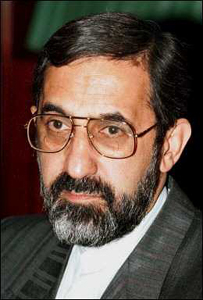October election surprise to be announced soon

By Mark Ellis
Reza Khalili, the former member of Iran’s elite Revolutionary Guard, who later became a CIA spy and escaped to the West, says Iranian and U.S. negotiators reached an agreement that calls for Iran to halt its nuclear enrichment program temporarily in exchange for the lifting of some of the U.S. sanctions, according to his report published by World Net Daily (WND).
Iran’s supreme leader, Ayatollah Ali Khamenei, expects a letter from President Obama in a few days guaranteeing the details of the agreement, arrived at recently during secret negotiations in Doha, Qatar.
Khalili became a Christian in the U.S.after a friend gave him a copy of the JESUS Film and the New Testament. Khalili maintains high-level contacts within Iran, but won’t divulge his source. “I can’t reveal his place in the government, but he’s very high up, trustworthy, and has direct knowledge of the negotiations,” he notes.
The American and Iranian delegations began their meetings in Doha, Qatar October 1st, according to Khalili’s source. “The Iranian side was headed by Ali Akbar Velayati, the former Iranian foreign minister and a close adviser to the supreme leader Khamenei. Velayati is currently being sought by Argentina’s authorities for the Jewish community center bombing in Buenos Aires that killed 85 innocents in 1994.
“The American team was led by a woman, a representative of the Obama administration, who has been involved with the Democratic Party for a long time,” Khalili says. “She has met many times with Velayati. They know each other and trust each other.”
Khalili’s source identified Valerie Jarrett, a senior Obama adviser, as the head of the U.S. effort to engage Iran. Jarrett’s family has known the Velayati family since their stay in Iran in the 1950s, the source added. Jarrett’s father worked at the Namazi hospital in Shiraz, owned by an Iranian family that has been influential with the regime after the Islamic Revolution.
Both sides could benefit from such a deal. “For the Iranians, this is the right time, right before the elections. They don’t have to suspend their enrichment on a long-term basis. There has been a lot of pressure on the Iranian economy, with recent riots, so it will benefit them if the sanctions are removed.”
Khalili states in WND that French intelligence verified that Yukiya Amano, the current director general of the International Atomic Energy Agency, has been given the go-ahead by the U.S.to be ready to travel to Iran and announce the agreement, according to Hamid Reza Zakeri, a former intelligence officer in the regime who has defected to Europe.
The deal would allow Iran’s right to peaceful enrichment, remove many of the sanctions, accept that Iran’s nuclear program does not have a military dimension and relieve international pressure on the regime.
Also, the U.S.would announce that the killing of Iranian nuclear scientists was the work of a foreign country, though Israel would not be named, to increase legal pressure on Israel.
“Many within the Iranian opposition believe that if the West continues to pressure the Islamic regime and supports the aspirations of the majority of the Iranian people who resent the regime and its ideology, the regime will face a nationwide uprising and will collapse from within, changing the geopolitics of not only the region but the world,” Khalili noted in WND.
“However, if the regime is provided a lifeline for whatever reason, not only will it get the bomb but it will take Iranians and the world hostage for decades to come, they believe.”
Kahlili teaches at the U.S. Department of Defense’s Joint Counterintelligence Training Academy (JCITA), is a senior fellow with EMPact America and amember of the Task Force on National and Homeland Security. He is the author of “A Time to Betray,” a book about his double life as a CIA agent in Iran’s Revolutionary Guard. “A Time to Betray” was the winner of the 2010 National Best Book Award, and the 2011 International Best Book Award. The book is set to become a movie.



